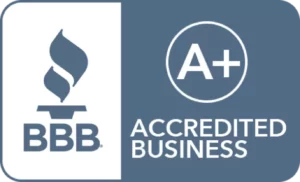You can invest your 401(k) in real estate when you establish a Self-Directed individual retirement account, such as a Solo 401(k) or a Roth Solo 401(k) for real estate. When we say “invest your 401(k) in real estate”, we are not referencing a traditional, employee sponsored 401(k). In fact, you cannot use your 401(k) to invest directly in real estate. You can use a Solo 401(k) if you’re a small business owner with no employees or a self-employed individual.
The Solo 401(k), also known as the self-directed 401(k), was created by the IRS to specifically aid:
- Self-employed individuals
- Individuals who actively generate a portion of their income through self-employment activities
- Small business owners with no employees (except for themselves or a spouse)
Establish a Solo 401(k) Retirement Plan
Prior to purchasing real estate, you must first establish a self-directed Solo 401(k) plan.
Advantages of the “Checkbook Control” Self-Directed Solo 401(k) Plan
- Created by the IRS specifically for the self-employed or small business owner with no full-time employees
- Receive a customized IRS approved open architecture self-directed Solo 401(k) plan
- Gain the ability to make traditional investments, such as stocks, but also all IRS approved alternative asset investments, such as real estate.
- Help build your retirement nest egg by contributing up to $66,000 per year ($73,500 if at least age of 50) for 2023 – ten times the maximum contribution amount of an IRA
- Contribute to your plan using pretax or Roth (after-tax) funds. Below, please find a link that discussed the benefits of using Roth funds to purchase real estate
- Borrow up to $50,000 tax- and penalty-free and use those funds for any purpose, whether personal or business
- Invest in what you know and understand without tax, such as real estate, precious metals, tax liens, hard money loans, private businesses, and much more.
- As trustee of the plan, making an investment is as easy as writing a check or executing a wire transfer.
- Generate tax-deferred or tax-free income or gains on your plan investments
- Open your Self-Directed Solo 401(k) plan at Capital One Bank – no need for a special custodian
- Asset & creditor protection
- Purchase real estate with leverage without triggering tax
- Receive an IRS opinion letter confirming the legality of the plan
How does it work?
- Your assigned solo 401(k) plan tax specialist will work with you to customize your Solo 401(k) plan based on your investment, tax, and retirement goals
- The new Solo 401(k) plan account can be opened at Capital One Bank
- Fund the Solo 401(k) plan with a rollover of any pretax retirement funds, or by making a tax-deductible or after-tax (Roth) contribution directly to the new plan account
- All income and gains generated by the Solo 401(k) plan investment will generally flow back to your Solo 401(k) plan without tax
- No annual IRS reporting or filing requirements if your plan assets are below $250,000
- We will handle all IRS plan administration
- No transaction fees
- No asset valuation fees
- Investing is as easy as writing a check!
- No plan termination fee
Purchasing Real Estate with a Solo 401(k)
Let’s go straight to the benefits.
Is an LLC Necessary?
Of course, you don’t need an LLC for your self-directed 401(k) to buy real estate. The Solo 401(k) Plan itself can take title of the property. In other words, the plan can own the property.
There is no requirement to establish an LLC with your Solo 401(k) Plan funds. However, buying real estate under an LLC provides asset protection. Solo 401(k) owns the LLC, and the LLC will own the property and you’re the manager of the LLC. As manager, you have full control over your investments.
Maintaining a Property with a Solo 401(k)
One of the primary advantages of purchasing real estate with retirement funds is that all gains are tax-deferred until a distribution or tax-free in the case of a Roth account (after-tax). Aside from navigating the IRS prohibited transaction rules, the following are a handful of helpful tips for making real estate investment using retirement funds:
- The deposit and purchase price for the real estate property should be paid using retirement account funds and not from any disqualified person
- All expenses, repairs, taxes incurred in connection with the retirement account real estate investment should be paid using retirement funds – no personal funds from any disqualified person should be used
- If additional funds are required for improvements or other matters involving the retirement account owned real estate investment, all funds should come from the retirement account or from a non “disqualified person”
- Partnering with yourself or another disqualified person in connection with a retirement account investment could trigger the IRS prohibited transaction rules.
- If financing is needed for a real estate transaction, only non-recourse financing should be used. A non-recourse loan is a loan that is not personally guaranteed by the retirement account holder or any disqualified person and whereby the lender’s only recourse is against the property and not against the borrower.
- If using a non-recourse loan to purchase real estate with a self-directed IRA, the unrelated business taxable income (“UBTI”) rules could be triggered and a tax rate reaching as high as 40 percent could apply. Note – an exemption from this tax is available for 401(k) plans pursuant to IRC 514(c)(9). If the UBTI tax is triggered and tax is due, IRS Form 990-T must be timely filed.
- No services should be performed by the retirement account holder or any “disqualified person” in connection with the real estate investment. Please see:
- Title of the real estate purchased should be in the name of the retirement account. For example, if Joe Smith established a Self-Directed IRA LLC and named the LLC XYZ, LLC, title to the real estate purchased by
- Joe’s Self-Directed IRA LLC would be as follows: XYZ LLC. Whereas, if Joe Smith established a self-directed IRA with ABC IRA Trust Company (custodian), and the custodian purchased the real estate directly on behalf of Joe without the use of an LLC, then title would read: ABC IRA Trust Company FBO John Doe IRA.
- Keep good records of income and expenses generated by the retirement account owned real estate investment
- All income, gains or losses from the retirement account real estate investment should be allocated to the retirement account owner of the investment
- Make sure you perform adequate diligence on the property you will be purchasing especially if it is in a state you do not live in.
- Beware of fraud if purchasing real estate from a promoter.
- If using a self-directed IRA LLC to buy real estate, it is good practice to form the LLC in the state where the real estate will be located to avoid any additional filing fees. Also, be mindful of any annual state LLC filing or franchise fees.
Using retirement funds to buy real estate can offer retirement account holders a number of positive financial and tax benefits, such as a way to invest in what one knows and understands, investment diversification, inflation protection, and the ability to generate tax-deferred or tax-free (in the case of a Roth) income or gains. The list of helpful tips outlined above should provide retirement account investors looking to buy real estate with a guideline of how to keep their retirement account from running afoul of any of the IRS.
Why Real Estate?
After the 2008 financial crisis, people became wary of Wall Street. They didn’t feel comfortable making traditional investments they didn’t fully understand. Individuals, particularly those in the middle class, didn’t know what was happening in Wall Street. As a result, they became skeptical investing their retirement funds in traditional assets.
Real estate, however, is something most us feel comfortable with – lower class, middle class and upper class alike.
Many people worry about inflation, which is another reason they turn to real estate investments. Even if the risk of inflation isn’t real (it may or may not be), inflation can seriously hurt a retirement portfolio. The value of currency today may be worth significantly less tomorrow. Hard assets (real, touchable assets) is a way to protect your retirement plan against inflation. In a way, hard assets act as a buffer against your retirement assets and the havoc of inflation.
Types of Real Estate Investments
Below is a partial list of domestic or foreign real estate-related investments that you can make with a Solo 401(k):
- Raw land
- Residential homes
- Commercial property
- Apartments
- Duplexes
- Condos/townhouses
- Mobile homes
- Real estate notes
- Real estate purchase options
- Tax liens certificates
- Tax deeds
Did You Know?
For a Solo 401(k), real estate and cryptocurrency are available investments, as well as more traditional areas such as stocks and bonds. You can contribute as both employer and employee; the Solo 401(k) offers higher contributions than other accounts; and you can invest more money for your future! Contact IRA Financial today to learn more.











